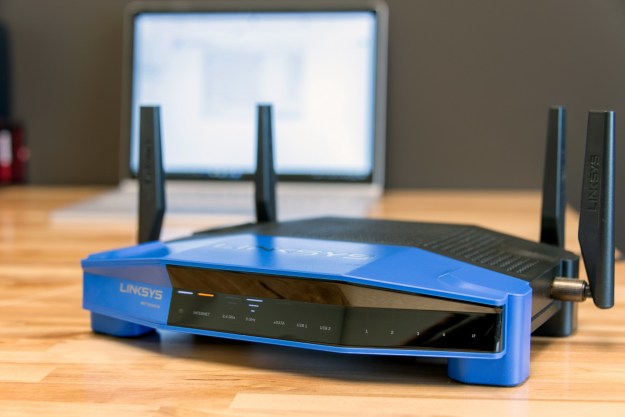To deliver better Wi-Fi reception and coverage, especially in larger homes, TP-Link is bringing new innovation to the router space. The company’s latest Wi-Fi 6E router, the TP-Link Archer AXE200 Omni comes with four antennas that are motorized, allowing them to pivot and swivel towards your devices as you move around the house.
Essentially, by tailing your connected devices, the TP-Link Archer AXE200 Omni will help to send out the strongest signals to your devices.

While stalking, motorized antennas won’t matter much to desktop gamers with stationary rigs, the novel concept could help improve Wi-Fi signals for mobile gamers as they move their laptops from room to room, or for smartphone and tablet users who roam the home. Combined with existing Wi-Fi technologies, like beamforming, the Archer AXE200 Omni helps to ensure you have strong Wi-Fi coverage.
The swiveling antenna looks similar to a quadrocopter drone. The design is definitely a different take on how antennas should be placed on a router — we have seen discrete internal antennas on mesh systems, aggressively placed antennas on gaming routers, and even the futuristic wing-shaped antennas on rival Netgear’s Nighthawk.
Aside from the motorized antenna design, the Omni is a tri-band router with a 6GHz band. The router can handle connection speeds up to 10Gbps, making it a future-proof addition for gamers — most home broadband plans top off at 1Gbps for fiber connections, and the average American home has broadband speeds far less than this currently.

In addition to the Archer AXE200 Omni, TP-Link also announced an AXE300 router with quad-band support that reaches 16Gbps speeds. The quad-band design allows the AXE300 to compete against the pricey Orbi Wi-Fi 6E mesh router. Though TP-Link didn’t disclose pricing for its system, the Orbi mesh network costs $1,500.
In the mesh networking space, the company also announced an update to its Deco router. The new TP-Link Deco XE200 comes with Wi-Fi 6E support that will help it reach speeds up to 11Gbps. A mesh system with two Deco routers can cover homes up to 6,500 square feet, the company claimed, and allow 200 devices to connect simultaneously. This should make the Deco suitable for use in small offices, home offices, and homes. The router boasts a simple, minimalist design that won’t seem as aggressive when placed in open spaces as the AXE200 Omni.
The company did not reveal pricing for its new router products at CES 2022.
Editors' Recommendations
- Google Nest Wi-Fi Pro adds Wi-Fi 6E but loses compatibility
- Google’s Nest Wifi Pro leaks weeks ahead of Pixel event
- Linksys’ new dual-band Wi-Fi 6 routers are surprisingly affordable
- Netgear’s new Nighthawk gaming router brings Wi-Fi 6E speeds to the masses
- Wi-Fi 7 is coming to CES 2022 with promises of even faster speeds


